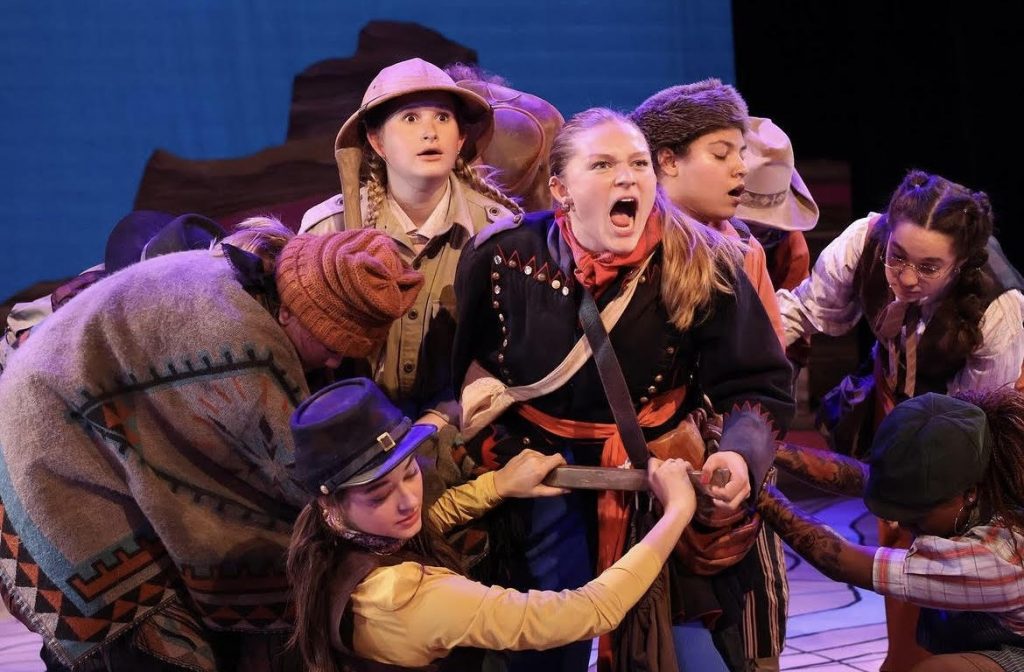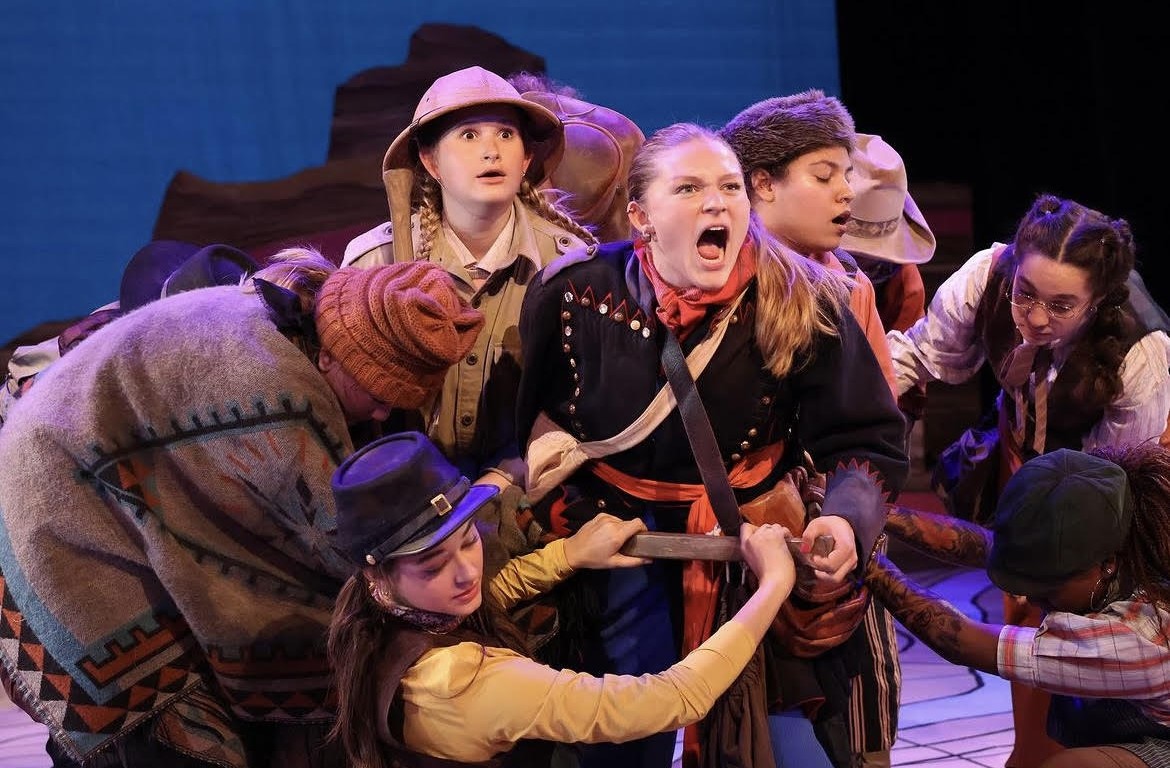By Kevin Lake, Staff Writer

On Oct. 6 at 7:30 p.m., Long Island University’s Little Theatre premiered its first stage play of the Fall 2023 semester. The campus was treated to a performance of 2015’s “Men on Boats”’ written by Jackyln Backhaus. Performances occurred on Oct. 7, 8 and 9.
The story of the play is based loosely on the real-life 1869 Geographic Exhibition of the Grand Canyon led by John Wesley Powell where he employed the services of nine other men. For three months the party trekked through the rivers along the valley where they encountered various obstacles and hardships. As the adventure continued, many of the group separated due to different issues and frustrations. Of the ten, only six men would finish the journey.
Junior theatre major and stage manager for the production Amanda Wellence shed some light on the story.
“Though some of the facts are not entirely true it’s based on an actual story,” Wellence said.
The genre of “Men in Boats” fits snugly into the drama and comedy categories. Don’t expect any singing or dancing in this stage production. It’s not uncommon for the Post Theatre Company to venture beyond musicals, as most of last year’s works were not song-focused.
Also breaking conventions is the choice of using a cast entirely absent of cisgender males. Despite the characters themselves being based on real men, none of the individuals portraying them share their gender. Cast member and junior theatre major Stephanie Mba shared her thoughts on this.
“Women and certain other people don’t get to play the roles that men get to play sometimes. It’s so easy for a man to play a woman but you don’t usually see a woman playing a man. It’s much harder to get that kind of role,” Mba said.
An important unbalance in the world of stageplays is how often female roles are portrayed by men. Exclusive performances where men fill in the role of women is quite universal. In Japan, Kabuki theater is a centuries-old tradition with vibrant colors and elaborate dance numbers; women were banned from participating back in 1629. Prior to the Shogun’s decision, men and women acted together. In fact, it’s widely believed that the earliest Kabuki plays were produced by a shrine maiden named Izumo no Okuni who created them alongside other lower-class women as all-female plays. However, to this day, women are still prohibited from participating in the cast.
Not even Shakespeare’s works were safe from global patriarchal rules as during his lifetime in Elizabethan England, as only male actors were allowed to perform. This means that in its original debut, Juliet of “Romeo and Juliet” would have been portrayed by a young man or boy opposite Romeo who is already supposed to be 16. It wouldn’t be until the 1660s, a half-century after Shakespeare’s death, that women were slowly transitioned onto the stage.
The main excuse for this worldwide discrimination was the concern that venues may be linked to brothels where actresses could be prostitutes as well as the general social conservatism at the time where any form of female expression was branded as sexual.
Actresses taking on the roles of male characters is much rarer and is often done out of necessity and rarely is it used as part of an artistic vision. An example of this would be Peter Pan, who is often played by women because they are more reliable to give a better performance than a child actor. Higher pitches of their voices compared to a man stop them from aging out of the role and it’s easier to lift them on wires.
Men on Boats seeks to correct this age-old discrepancy by not casting any cisgender males for this story about an expedition composed entirely of cisgender male Civil War veterans.
Other issues are tackled through the narrative, including indigenous rights which are often minimized or ignored in stories of westward expansion such as this.
Mba shared her thoughts on this.
“Getting that awareness out is important. We talk about the Native American Rights and their water rights which is a big thing going on right now and was a thing going on back then.” Mba said.
The water rights she refers to are the oil pipelines being currently built across America that are affecting the water access on reservations.
The people who made the show possible are immensely proud of the end result.
“The director heard about the cast and wanted their input and directions put back into the show. It was amazing. Watch and see,” Wellence said.
The cast and crew could not be more proud of the final result and the work that brought them there.
“I feel like we have been really involved in the process every single step of the way. And it was such a short rehearsal time. To me it felt like two weeks but it also feels like we’ve been doing this for our entire lives. It’s a small cast, so everyone’s like so much closer now. We all talk more and I feel like all our opinions got heard,” said Mba.
Next on the agenda for Post Theatre Company is “Come Back for an Hour” which will be performed from Oct. 27 to Oct. 29. For more information regarding the cast and crew of “Men on Boats” as well as future stage productions go to the department’s website: https://posttheatrecompany.org/.




Be First to Comment